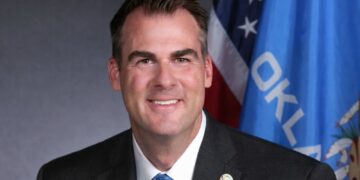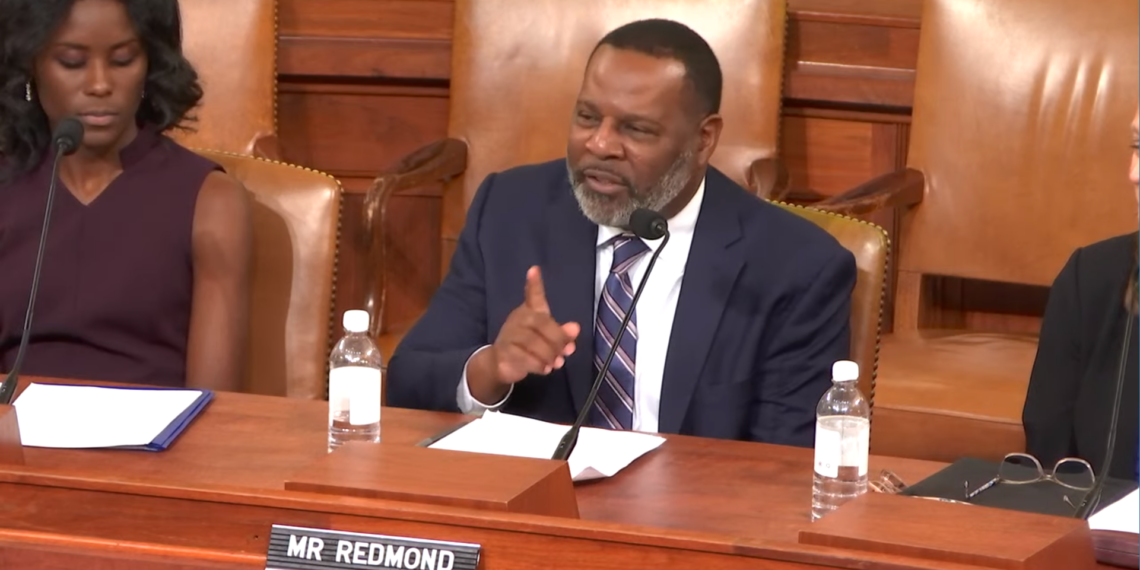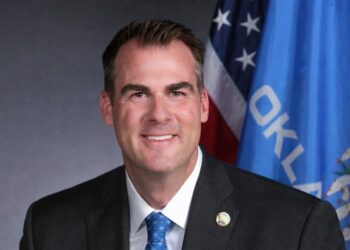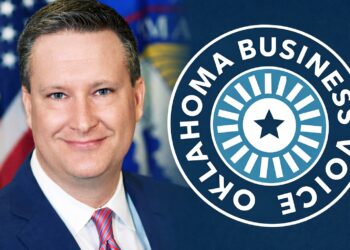OKLAHOMA CITY (OBV) – Jerome Redmond, an Oklahoma City-based trucking industry leader, spoke with Oklahoma Business Voice about his recent testimony before the U.S. Congress on how allowing 529 education savings plan funds to be used for truck driver training and other vocational education expenses would benefit young Americans.
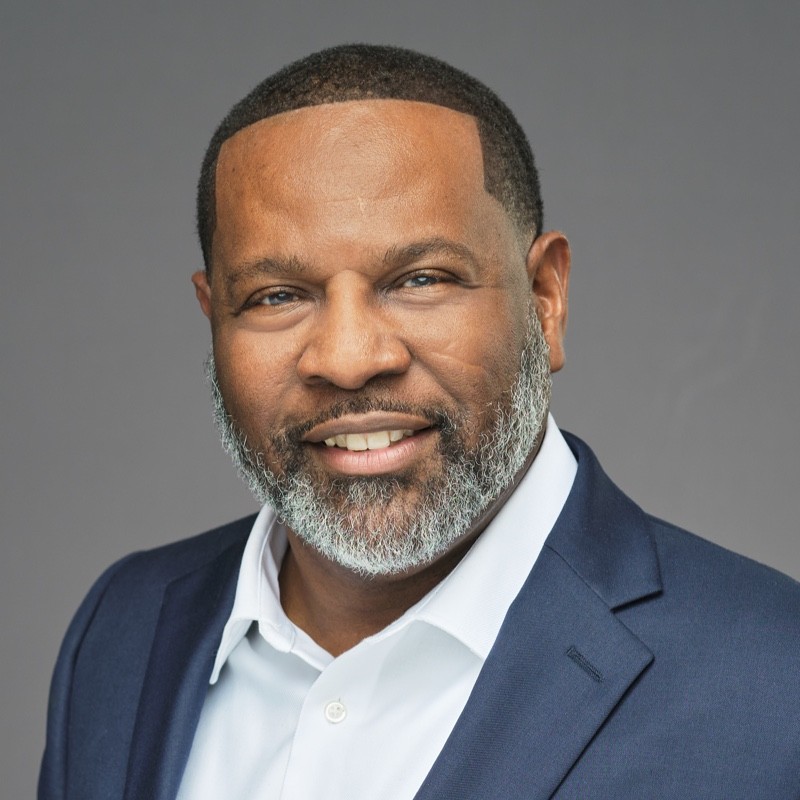
Redmond, who is the president and CEO of American Truck Training and chairman of the Commercial Vehicle Training Association, testified before the House Ways and Means Committee on Oct. 25. He and other prominent figures from the vocational education sector spoke to members of Congress during the hearing on 529 college savings, championing vocational training as a viable educational track that equips many Americans with the skills they need for prosperous careers.
“Although the main purpose was to take 529 college savings plans and amend them to allow for other types of educational opportunities in the form of vocational training, fees for ACT tests, I was really there more on behalf of trucking schools and CareerTech type training,” Redmond said to OBV.
A 529 plan is a tax-advantaged savings plan that helps cover education costs. It was initially confined to post-secondary education costs, but was expanded to fund K–12 education in 2017 and apprenticeship programs in 2019.
The hearing focused on expanding educational freedoms and opportunities for families, students and workers across the nation. Ways and Means Committee members and witnesses discussed expanding 529 education savings accounts to cover the cost of books, tutoring to help students catch up after remote learning, educational therapies for students with disabilities and homeschooling costs.
Ways and Means Committee members also explored expanding 529 accounts to allow parents and students to pay for training through a skilled labor or licensing program to end the nation’s skilled labor shortage.
Redmond said he and his vocational industry colleagues’ goal was to persuade Congress to amend the law to allow for those 529 savings plans to be used as career savings plans, such as trucking, welding and other vocation schools.
The hearing was designed to gather evidence from leading professionals within the vocational training industry.
“And they’ll take that [evidence], go over it and then come back with a decision on whether to amend the law, which we believe they will,” Redmond said.
Redmond dedicated much of his remarks during the hearing to sharing the stories of American Truck Training students who would greatly benefit from 529 savings funds.
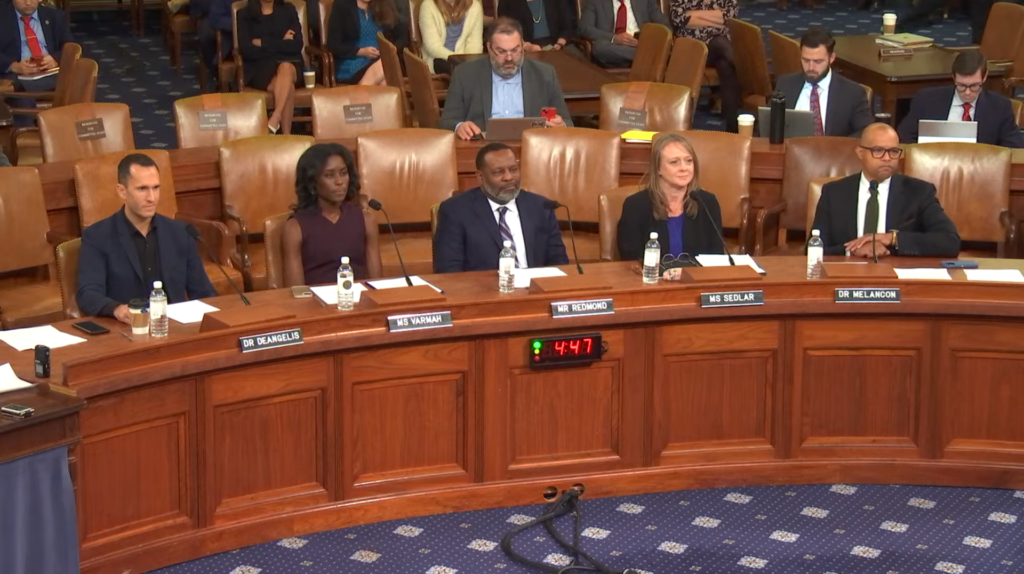
The Ways and Means Committee’s chairman, Rep. Jason Smith, R-MO, asked Redmond to speak about the impact that would come from expanding 529 accounts to cover technical skills and real-world training.
“We have quite a bit of students. In fact, I just thought of one in my head…her name is Alania, who’s a current student at our school. She went to nursing school at first; it just didn’t pan out. It became expensive; there were other reasons why she needed to leave. Had she had some type of funding, like this 529, she could have just easily paid for trucking school and gotten her CDL [commercial driver’s license]. I’m actually glad to say also, just as of yesterday, she just got pre-hired for a company. And what pre-hired means…it just means you’re conditionally hired at a trucking company, ready to go as soon as you graduate. I think that the 529 plan should be expanded for folks like Alania,” Redmond said in his response to Smith.
More people like Alania are needed in the trucking industry, which is struggling from severe labor shortages both in Oklahoma and nationwide.
“The trucking industry is 60,000-plus truck drivers short throughout our nation, 6,000 just in Oklahoma alone. And we’re falling further and further back. Next year, it’ll be higher unless we do more about it,” Redmond said.
The Center for Manufacturing Research’s newsletter, Workforce in Focus, stated earlier this year that tractor-truck driver is the occupation most in need of full-time workers that is non-remote or in-person.
The national truck driver shortage could plummet to 160,000 by 2030, and a million new drivers are needed over the next decade to address the demand, according to American Trucking Associations (ATA) officials.
Scores of young people across Oklahoma and throughout the nation are looking to transition into a career in the trucking industry, and 529 funds would help them on their path, Redmond said to OBV.
“One of the biggest reasons why folks don’t participate in great programs is simply because they don’t have the money or the resources. Well, how sad would it be for a person to prep to go to college, maybe even go to college, and it really wasn’t their cup of tea. They didn’t do that great in college or or or it just really wasn’t for them, and they wanted to go on to a different career, but all their money was saved up, or their parents or grandparents or whoever saved up all this money for college, not for trucking school or for welding school or something else. But now [529] will allow them to get into the trucking industry without having to pay additional money with money they already have,” Redmond said.
Eighteen to 20 year olds who have a commercial driver license (CDL) can only drive intrastate as a trucker. A new bill before Congress aims to allow 18-year-old CDL holders to drive interstate as well in a reduced capacity, according to Redmond.
“They know that a lot of young people want to get in in the industry, but it’s not as lucrative for them if they’re not able to drive outside of the state,” Redmond said. “They still can make a lot of money. They can make $40,000, $50,000, $60,000. Can you imagine being a 19 year-old-guy or 20-year-old lady and earning a starting pay of $60,000 to $70000 right out of high school? How would that change the state? How would that change our economy? How would that change the way they look at life? You’re talking about giving them responsibility, young people go to war at 18, 19, 20. If they can do that, if we can train them properly through military training, then surely trucking schools that have existed for many years – decades and decades – can do our part to make sure that they’re responsible.”
Redmond shared several stories with the Ways and Means Committee about how truck driving training has changed young people’s lives for the better.
“I want them to understand that there is a pathway for these young folks because college isn’t for everyone,” Redmond said.
Redmond said expanding 529 coverage to include vocational schools will not cause a surge in new truck drivers, but it will make a difference in the lives of young people looking to begin their career.
“I think it’s going to be a gradual build. But what if it helps one person? What if it helps five people? Isn’t that enough for me to have spent a little bit of my time to make sure that five Oklahomans per year take advantage of this? Now, I do believe there will be many more than that, but what if it was just only five,” Redmond said. “Maybe one went to my school and the other four went to another trucking school. Well, to me it was worth my time because five people got to utilize what their parents or grandparents worked hard to save for them.”
The Oklahoma Legislature took action last year to address the truck driver shortage.
Gov. Kevin Still signed House Bill 2750, which allows third parties to administer written CDL tests, into law on April 27.
Rep. Nicole Miller, R-Edmond, and Sen. John Haste, R-Broken Arrow, wrote HB 2750 in response to the commercial driver shortage. The bill allows Service Oklahoma to enter into agreements with third parties to provide the written portion of the commercial driver license test.
“Service Oklahoma was very good to work with us on it,” Miller said to Oklahoma Business Voice in late April. “They are very supportive in trying to open up new testing sites and access to testing expediently, so we should be seeing [new testing locations] within the coming months.”
Redmond spoke with OBV in late April, saying that the new law will not only positively impact Oklahoma’s workforce, it will also help the ongoing effort to improve working Oklahomans’ quality of life.
“First, I think this is yet another way to advance the efforts by the governor to make Oklahoma a top 10 state,” Redmond said. “And two, I’m just proud of the fact that the governor takes Oklahomans not having jobs extremely seriously on his his list of things to do, and not just jobs, but high-paying jobs that move the needle for families in Oklahoma.”
The new CDL law is now in effect.
Click here to read Redmond’s full remarks to the Ways and Means Committee.


